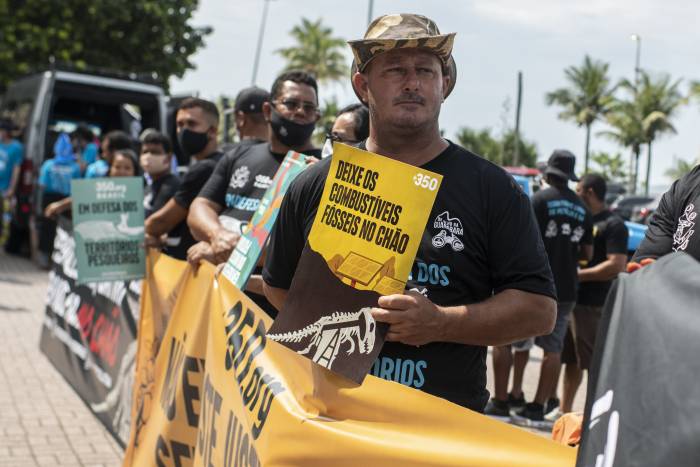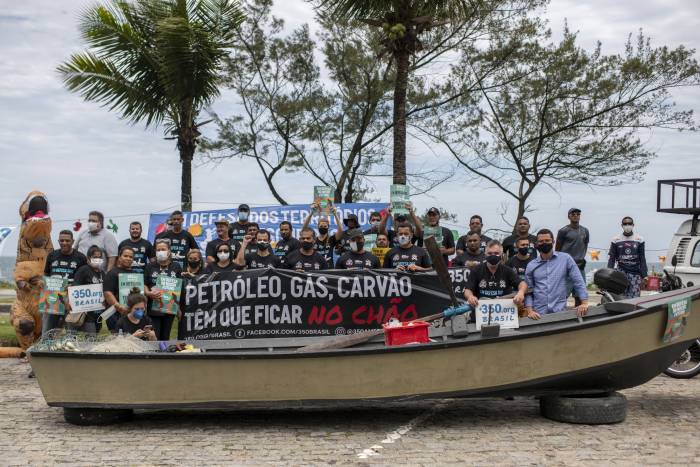The “stranding” of oil exploration blocks in the Potiguar, Pelotas and Campos basins, registered yesterday (7th) in the 17th Round of Auctions of the National Agency for Petroleum, Natural Gas and Biofuels (ANP) represents a victory for the socio-environmental movement and for marine conservation in Brazil. In total, 92 blocks were on offer, but only 5 were purchased by the Shell company and by the Shell + Ecopetrol consortium.
The result of the auction is a reflection of pressures and demonstrations that have been carried out by environmentalists, traditional fishing communities, and the various warnings from scientists about the risks of fossil exploration in extremely sensitive regions of Brazil.

Artisanal fishermen from Ahomar and SindPesca-RJ protested in front of the Windsor hotel, in Rio de Janeiro. Photo: Lucas Landau
On Tuesday (05/10), 350.org had already released, in partnership with the Maramar Institute, a study that indicated that the auction exposed to the risk of destruction some of the most important ocean areas for biodiversity and fishing in the regions of North, Northeast and South of Brazil.
According to the study, damage caused by accidents in the oil activity could affect not only territories already protected by environmental legislation, such as Fernando de Noronha, but also regions that have not yet received official protection and are known as “oases” of fish and marine life in general. These areas require more detailed assessments of the impacts they may suffer, which has not been adequately carried out by official bodies.
“On the eve of COP26, this was a clear message to the governments of Brazil and around the world that civil society no longer tolerates the damage that oil and gas represent to the environment and communities.” Ilan Zugman, Director of 350.org in Latin America

Dinosaur attended the auction asking that his “family members” not be auctioned. Photo: Lucas Landau
“The life of the artisanal fisherman is a struggle. We showed our opposition to oil and gas exploration in marine areas and helped to prevent 87 blocks from being auctioned. A sea without oil is a victory for us, for the working communities that live off coastal ecosystems and for the Brazilian natural heritage.” Alexandre Anderson, president of Ahomar

Protesters gathered after auction failed. Photo: Lucas Landau
According to the ANP, blocks that did not receive bids should be included in the Permanent Offer, which consists of the continuous availability of fields offered in previous bids that were not auctioned or, therefore, that were not returned to the agency.
Although we celebrate the absence of offers in the other three basins, which means a moment of tranquility for thousands of families who make their living from artisanal fishing and tourism on the coast, the pressure should continue.
###
By Renata Padilha, Digital Campaigns 350.org Latin America